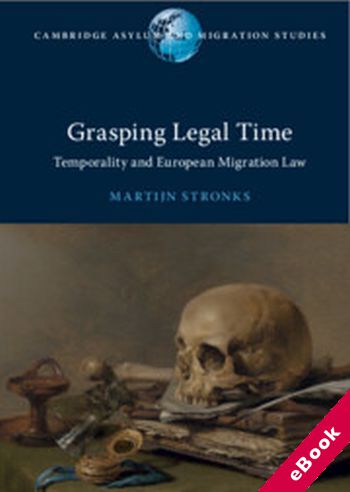We will be closed from 5pm Thursday 17th April for the Easter Bank Holidays, re-opening at 8.30am on Tuesday 22nd April. Any orders placed during this period will be processed when we re-open.

The device(s) you use to access the eBook content must be authorized with an Adobe ID before you download the product otherwise it will fail to register correctly.
For further information see https://www.wildy.com/ebook-formats
Once the order is confirmed an automated e-mail will be sent to you to allow you to download the eBook.
All eBooks are supplied firm sale and cannot be returned. If you believe there is a fault with your eBook then contact us on ebooks@wildy.com and we will help in resolving the issue. This does not affect your statutory rights.
Time is one of the most important means for the exercise of power. In Migration Law, it is used for disciplining and controlling the presence of migrants within a certain territory through the intricate interplay of two overlapping but contradicting understandings of time – human and clock time. This book explores both the success and limitations of the usage of time for the governance of migration. The virtues of legal time can be seen at work in several temporal differentiations in migration law: differentiation based on temporality, deadlines, qualification of time and procedural differentiation. Martijn Stronks contests that, hidden in the usage of legal time in Migration Law, there is an argument for the inclusion of migrants on the basis of their right to human time. This assertion is based in the finite, irreversible and unstoppable character of human time.